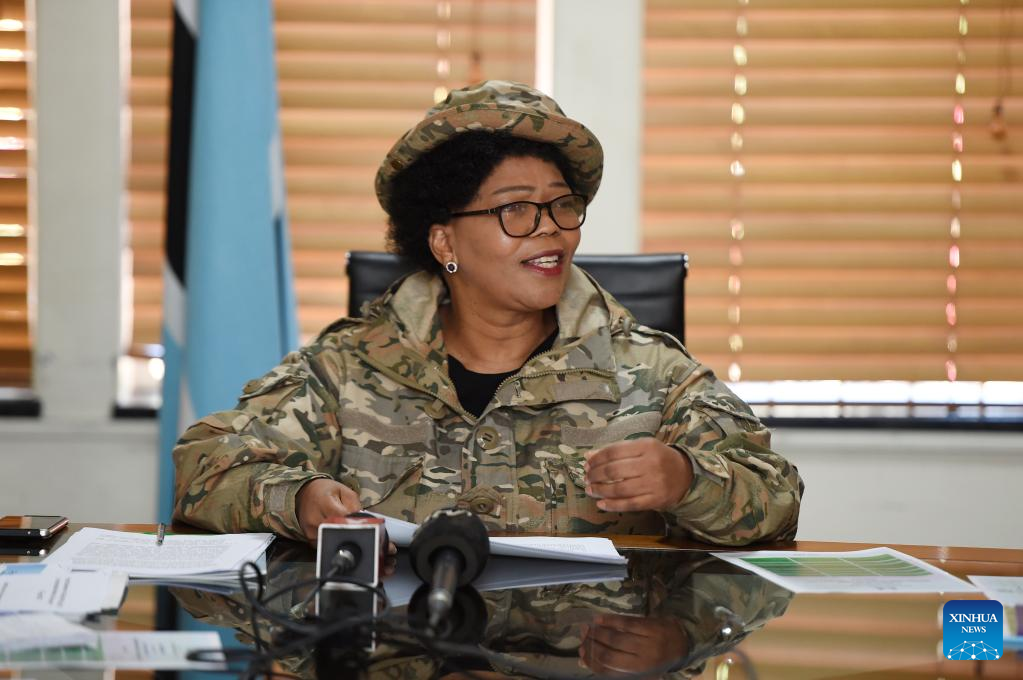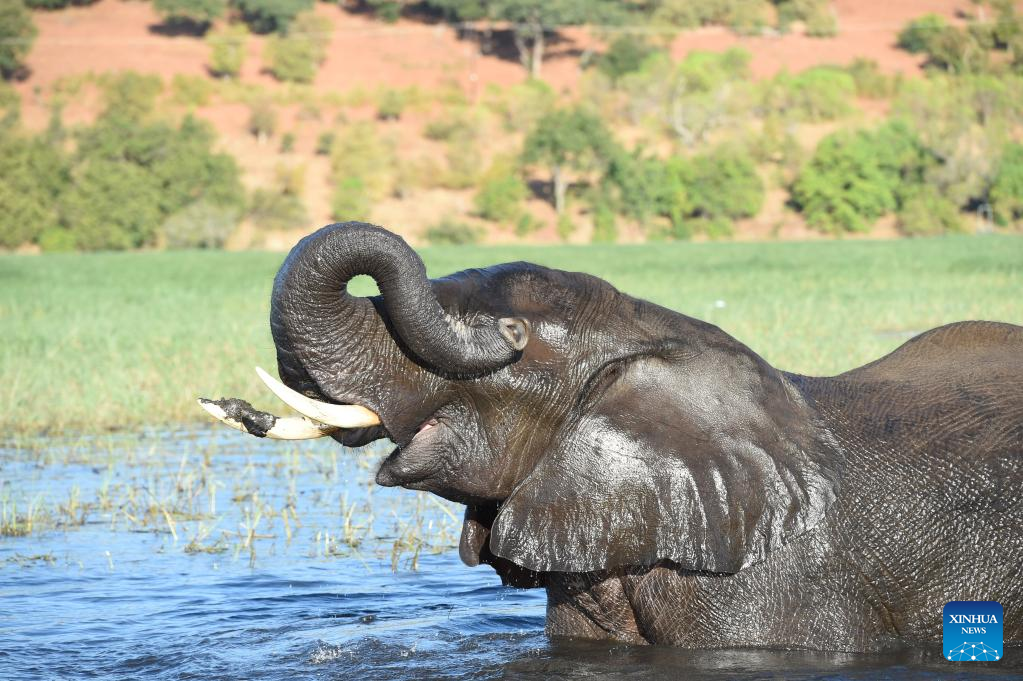
This photo taken on Aug. 17, 2022 shows Philda Kereng, Botswana's Minister of Environment and Tourism, in Gaborone, Botswana.
The Botswanan government received a donation of six boreholes in the northwestern part of the country on Thursday from conservation and hospitality company, Okavango Wilderness Safaris (OWS) in a move that seeks to reduce human-wildlife conflicts.
Facing growing human and wildlife populations and the rising risk of conflicts, Botswana's Minister of Environment and Tourism Philda Kereng said the drilling of boreholes will go a long way in bringing stability to the landscape. (Photo by Tshekiso Tebalo/Xinhua)
GABORONE, Jan. 20 (Xinhua) -- The Botswanan government received a donation of six boreholes in the northwestern part of the country on Thursday from conservation and hospitality company, Okavango Wilderness Safaris (OWS) in a move that seeks to reduce human-wildlife conflicts.
Facing growing human and wildlife populations and the rising risk of conflicts, Botswana's Minister of Environment and Tourism Philda Kereng said the drilling of boreholes will go a long way in bringing stability to the landscape.
She said the major challenge is that there is very minimal rainfall in all of Botswana's parks and the wild animals are moving in search of water and pasture. "If we do not look for water for them, they will be uncontrollable," she said, adding that the OWS has decided to make the donation at an opportune time.
Very minimal rainfall witnessed in Botswana thanks to climate change has heightened incidents of human-wildlife conflict, and drilling boreholes within game parks is the only way to reduce conflict between humans and wild animals, said Kabelo Binns, the board chairperson of OWS.
Binns said the Okavango community in the northwestern part of the southern African country is part of the regional Kavango Zambezi Transfrontier Conservation Area, which is home to over 50 percent of the African Savannah elephants found in the southern African region as well as an estimated two million people.
He said it is a landscape where people and nature have no choice but to live side by side, adding that the area operates as a living laboratory for finding ways to balance conservation and development.
A 2021 report from the United Nations Environment Programme found that conflicts between humans and wild animals are among the greatest threats to the long-term survival of some of the planet's most iconic species. Last year, Botswana utilized an estimated five million U.S. dollars to compensate farmers whose fields were destroyed by wild animals. ■

An elephant is seen in the Chobe River in northwest Botswana's Kasane, May 10, 2021.
The Botswanan government received a donation of six boreholes in the northwestern part of the country on Thursday from conservation and hospitality company, Okavango Wilderness Safaris (OWS) in a move that seeks to reduce human-wildlife conflicts.
Facing growing human and wildlife populations and the rising risk of conflicts, Botswana's Minister of Environment and Tourism Philda Kereng said the drilling of boreholes will go a long way in bringing stability to the landscape. (Photo by Tshekiso Tebalo/Xinhua)



